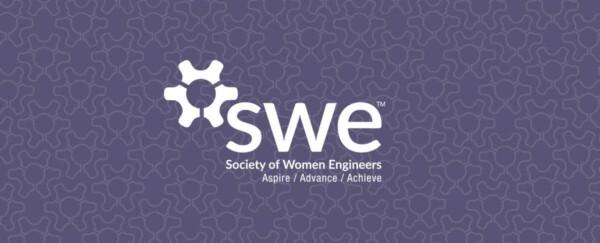This month’s SWEet Wisdom revolves around the idea of being intimidated by engineering and the mistakes that we’ll inevitably make during our engineering journeys. But guess what? Mistakes are OK—and can actually be incredibly beneficial to us in the long run. That being said, we know that moving past our mistakes is easier said than done, which is why we looked to some of our real-life engineers to hear about their firsthand experiences. Read on to hear their advice!
Were you ever intimidated by engineering? How did you move past your fear?
Vimala Satish
Kuvempu University, Karnataka, India, MSc (IT) | Manager, IBM Sterling SCBN Product Support, IBM

As a student, I was not confident handling lab equipment like a soldering iron, lead and other practical equipment used in electronics lab classes. I was scared of the fumes and heat produced from these devices. But, as I started exploring more with the experiment output and test results, my curiosity in the subject increased. This way I slowly got used to the heating materials usage. I think it’s only the initial teething problems, but once you get hold of the subject and gain interest in the experiments, you can get through all the other odds which you initially were reluctant to try.
Prarthana MJ
Alvas Institute of Engineering and Technology, B.E. in computer science | AI and cloud consultant for supply chain solutions, IBM

When I started engineering, I had two fears: 1) being left out, and 2) getting a good job. I took biology in my PUC but most of my classmates were familiar with programming in C. In the first year, I started feeling left out as most of the concepts were new to me. I had to put in a lot of effort to learn and code (spoiler alert: the effort spent was a game changer and helped me to become a good developer). I practiced a lot. By the end of the semester, I was not only able to get a good score but I was also becoming a better developer. My second fear started to form at the end of my third year, when placements were a major topic of discussion. I prepared my best for the next three months, and luckily, that worked. So far whatever efforts I have invested, I have received a good return. To summarize, I believe that “miracles are another name for hard work.” 🙂
Agnes Wozniak
University of Maryland, M.S. in aerospace engineering | certification engineer, The Boeing Co

Oh, many times I faced a class that was particularly hard or a task that was especially complex. Once I’d taken a deep breath, I would try to break it down into parts and list the knowns and unknowns for each then draw on past experiences. Sometimes, however, I was so overwhelmed that I couldn’t even get to that “deep breath” stage. That’s when I’d remind myself that I’d gotten this far on my own, that I was strong, and that with perseverance I’d overcome other obstacles and fears. If I had to, I’d step away for a while to give myself time to calm down so I had the strength and energy to go at it again.
Kusum Kumar
BITS Pilani, M.S. | senior engineer, IBM

Yes, I was intimidated. And I am still struggling to admit that on a public platform. I had my doubts after my class 10, when we were to choose Science or Lit stream for further pursuing. Many times I had thought about choosing Lit, not only because of my love for stories and poems but also for the fear of doing the wrong thing. “What if you build something and it doesn’t work like it should?” “I would be a laughing stock, better stick to pen and words.” My father told me that making mistakes is quite natural, but not learning from them is what makes you a laughing stock. Working in teams, accepting my faults and confiding in my strengths is what will make me a good engineer and eventually a successful one. I started trusting my decisions, accepting my faults, adapting to teamwork, and slowly, very slowly, I eventually became an engineer.
Related content:
- SWEet Wisdom: What’s a Good Study Trick or Tip?
- SWEet Wisdom: How Does Your Job Help People?
- SWEet Wisdom: How Important is Adaptability in STEM?
- February SWEet Wisdom: Importance of More Women In STEM
- SWEet Wisdom: How Can a Student Mentor Other Women In STEM?
- SWEet Wisdom: How do Mentors Make a Difference?
- SWEet Wisdom: What Influenced You Towards Engineering?
Author
-

SWE Blog provides up-to-date information and news about the Society and how our members are making a difference every day. You’ll find stories about SWE members, engineering, technology, and other STEM-related topics.






